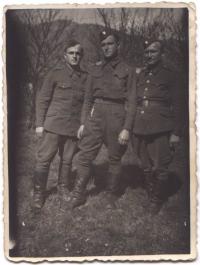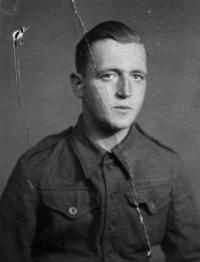Those that have power decide to start a warand ordinary people go and leave there lives there For nothing, just like that

Download image
Bohuslav Anděl comes from a family of Volhynia Czechs. When he was a child Volhynia belonged to Poland, the most numerous section of the population being Ukrainian. Bohusalv Anděl recalls the life of the Czech community, especially the feeling of pride in being of Czech origin and the strong patriotism. For him and many of his peers it was this pride and patriotism that motivated them to join the 1st Czechoslovak Army Corps. As a sapper, Bohuslav Anděl took part in severe fighting at Dukla; he describes his experiences caring for the wounded. He also gives an account of his strong and undying yearning for the end of the war and his loathing of the nonsensical fighting. In 1947 he re-emigrated to Czechoslovakia and attempted to run a small farm in Žatecko. However, he was almost immediately forced to join a Kolkhoz (a collective farm system) in which he worked until the onset of his illness. Bohusalv Anděl is convinced that today’s society does not properly appreciate the merits of the soldiers who fought on the Eastern Front and thinks they are neglected and denied appropriate honours.

